- Home
- Winston Groom
The Allies Page 28
The Allies Read online
Page 28
As soon as France was occupied, Hitler began building airfields along the French coast across the Channel from England, as well as improving half a dozen ports to pen the German submarines. In harbors up and down the Pas de Calais the Germans began assembling an armada of barges and other transport craft in preparation for an invasion of England. From Dover to Folkestone, people using strong telescopes could actually see the enemy on the cliffs of France constructing fortifications and building gun emplacements. They could even spot knots of German officers, pointing and gesturing. They were coming.
On the day of the French capitulation, Churchill gave another of his memorable addresses to the British people. “The Battle for France,” he said, “is over. I expect that the Battle for Britain is about to begin…The whole fury and might of the enemy must very soon be turned on us…
“Let us therefore brace ourselves to our duties, and so bear ourselves that if the British Empire lasts for a thousand years, men will still say, ‘This was their finest hour.’ ”
It was an immensely stirring speech, met everywhere with accolades and acclaim. But it was also beginning to seem that famous words were all that Britain had to defend herself. The retreated Dunkirk army, in disarray, had left its arms and equipment in France. Britain had a navy, but so did Germany. Britain also had the Royal Air Force, so far indefinite and untested. But there, in the hearts of those young men, lay the reckoning for the balance.
* * *
IMMEDIATELY AFTER THE FALL OF FRANCE, a significant crisis arose over the disposition of the great French navy. With France now for all intents under German control, what was to become of its fleet, second only to the Royal Navy in power? There were seven French battleships, a dozen cruisers, scores of destroyers, and a large complement of submarines, oilers, tenders, and so on. If they should fall into German hands it would tip the balance of sea power in the Atlantic to the Nazis. Worse, if this were combined with the Italian fleet as well, the balance would tip the entire world to the Nazis.
Churchill was determined not to allow this to happen. But the scenario presented a difficult diplomatic predicament, as Great Britain still had important relations with the Vichy government and with the French colonial possessions. Any attempt to strong-arm the French navy would be seen as a dramatic breach of faith.
On one of Churchill’s visits to France during the German invasion, Admiral François Darlan, commander of the French fleet, assured him that he would never allow the fleet to fall into German hands. But now Darlan was minister of marine under Vichy, equivalent to first lord of the Admiralty, or secretary of the U.S. Navy. So long as France was controlled by the Germans, and its fleet remained in contested waters, there was no telling what might happen. To Churchill, the mere possibility that the Germans could suddenly incorporate the French ships into their own fleet was in itself an unparalleled disaster.
At the time, the bulk of the French navy lay inactive at Mediterranean ports in French Algeria, watched by British warships lest the French suddenly try to break into the open sea. In June, right after France fell, Churchill approved a plan under which the British admiral commanding a larger fleet in the Mediterranean would present the French naval commander at the Algerian port of Oran with a series of choices that amounted to an ultimatum.
1. Sail away with the British and fight the Germans and Italians.
2. Sail to England, the United States, or French-owned Martinique—out of the war zone—and remain there, demilitarized and out of the action.
3. Sink your ships at their present moorings within six hours.
4. Or we will sink them for you.
The ultimatum was presented to the French commander Admiral Marcel-Bruno Gensoul, who refused to answer it. The British naval officers found their duty highly distasteful, for the French ships were sitting ducks and everyone knew how many French sailors were aboard. When they so informed the Admiralty, the following word came back: “The French ships must comply with our terms or sink themselves or be sunk by you before dark.”
With that, the British commander ordered the bombardment to begin. Before dark, most of the French naval fleet was either sunk or put out of action, and some two thousand French sailors were dead.
This caused many hard feelings among Frenchmen (Vichy or otherwise), and also in the French colonies, which now considered the British to be enemies. But Churchill, according to his secretary, had an ulterior motive: he wanted to impress on the American people—in particular, Franklin Roosevelt—that Great Britain was so deadly serious about continuing the fight against Hitler that it would take this unprecedented action against an ally (or former ally). That message was fully conveyed through the American press, which took serious note of British tenacity.
The next day, Churchill had to tell the House of Commons what had transpired in Britain’s name, and he was greatly concerned about the reaction. As historian Roy Jenkins writes: “One cannot imagine a Halifax-led government giving the order for Oran.”
When he had finished his address, Churchill sat down while the members seemed for the moment stunned; then cheers broke out all around that lasted a long time. Churchill sat on his bench “with tears pouring down his cheeks.”5
Years later when he wrote his series on the war, Churchill summed up his country’s situation and the uncertainties of the times in a philosophic passage that bears repeating here.
After Oran it became clear to all countries that the British government and nation were resolved to fight on to the last. But even if there were no moral weakness in Britain, how could the appalling physical facts be overcome? Our armies at home were known to be almost unarmed except for rifles. There were in fact hardly five hundred field-guns of any sort and hardly two hundred medium and heavy tanks in the whole country. Months must pass before our factories could make good even the munitions lost at Dunkirk. Can one wonder that the world at large was convinced that our hour of doom had struck?…
The buoyant and imperturbable temper of Britain, which I had the honor to express, may well have turned the scale. Here was this people, who in the years before the war had gone to the extreme bounds of pacifism and improvidence, who had indulged in the sport of party politics, and who, though so weakly armed, had advanced light-heartedly into the centre of European affairs, now confronted with the reckoning alike of their virtuous impulses and neglectful arrangements. They were not even dismayed. They defied the conquerors of Europe. They seemed willing to have their island reduced to a shambles rather than give in.
The threat of German invasion was foremost in everyone’s mind—most especially Churchill’s. Britain watched defiantly as Hitler’s invasion barges piled up in French harbors and construction on large-caliber guns proceeded on the cliffs of France. But the more Hitler and his generals considered it, invading England—or, as they referred to it, Operation Sea Lion—was going to be far more difficult than previously imagined.
For one thing, Britain had more than a thousand warships in its navy, some of which ceaselessly patrolled the Channel; behind them were powerful squadrons of destroyers, cruisers, and battleships, ready to take action. Then there was the Royal Air Force with more than a thousand warplanes. Every prospective beachhead would be heavily fortified and the British army could reinforce easily by busing or trucking units to the scene of action. By one British estimate, even if Hitler could somehow avoid detection and land up to a hundred thousand men on British soil, Britain’s destroyers and other large warships would cut his supply line within an hour and turn their guns on the enemy and his equipment ashore, while the fighters and bombers blew the hapless invaders into pieces.
The more the Germans considered it, the more they didn’t like the looks of it. By mid-July Hitler had decided to make a backhanded “peace offer” of sorts in a speech aimed at the British—and at Churchill in particular—in which he basically offered to let bygones be bygones. Churchill was
having none of it and had his foreign secretary dismiss the gesture by declaring, “We will not stop fighting until freedom is secure.”
Hitler was not a man to be jilted in such a fashion, nor could he allow an armed and hostile England to remain in his rear for long. After conferring with his army commander General Gerd von Rundstedt and air force chief Hermann Göring, Hitler took their advice, concluding that there could be no invasion of England until the Germans had destroyed the British air force and had complete air superiority over the proposed landing beaches. There were six of these, stretching along a hundred miles from Ramsgate to Portsmouth.
This began what became known as the Battle of Britain, which was fought almost entirely in the air. First came German bombing raids on English cities, accompanied by German fighters. The plan was that the Messerschmitt aircraft and their hotshot pilots would quickly overwhelm and destroy the green British youngsters in their Hurricanes and Spitfires.
Although the Messerschmitt was an excellent specimen, especially at high altitudes, it had a fatal flaw. Even coming from fields right over in France, it burned up so much fuel that by the time it got over England there was precious time left for a dogfight; the British pilots simply had to go up to meet them. Moreover, the British quickly discovered the Messerschmitt’s superiority at altitude and refused to rise to the bait.
And the British also had a further advantage. In the late 1930s, the famous American flier Jimmy Doolittle visited England as a representative of the Shell Oil Company and convinced the minister of defense that he could get almost a third more power out of the Rolls-Royce engines in both Hurricanes and Spitfire fighter planes by using very high octane fuel. Doolittle, who had a PhD in aeronautical engineering from MIT, knew what he was talking about. After the war, the British credited him with saving England from a German invasion.
Day after day, British citizens could stop in their fields, or go out into the yard, or get off their bicycles to watch the air show. Hundreds of men flew planes that hummed, mosquito-like, high up in the sky. They left long white contrails, twisting and diving and quite often falling in flames.
When it came to air battles, the Germans had yet another problem they did not put into the equation until too late: When a British pilot’s plane was downed, he parachuted out in his own country, or was fished out of the Channel, to fight another day. When a German went down he was lost for good, one way or the other.
The campaign went on from the middle of July through the first week in September, when German intelligence falsely concluded that the RAF was on its last legs. This induced them to commit a huge number of bombers—and their fighter escorts—in daily attacks on London and other cities. It was the beginning of the London Blitz (short for Blitzkrieg, or lightning war) and was supposed to commence the final destruction of British airpower.
It did no such thing. Despite wildly outrageous claims on both sides, Germany and Great Britain had about the same number of aircraft starting out. British tenacity, and the above-mentioned advantages of the RAF, reduced the German strength considerably. Although the prevailing view at Göring’s headquarters was that the Royal Air Force was finished, the British by this point had an advantage in planes and were turning out fighters at a rate of a thousand a month.
After two weeks of unsustainable losses, Hitler called the battle off on this front and moved to the night bombing of British cities, thus giving up on air superiority, or supremacy: the major precondition of the vaunted Nazi invasion of England. For his part, Churchill famously remarked in the House of Commons on the skill and bravery of the young pilots and air crews: “Never in the field of human conflict was so much owed by so many to so few.”
The British did not yet know that the Battle of Britain was completely over, and many still feared a German invasion. But the statistics make clear that Germany had suffered a major defeat. The Luftwaffe had 2,585 pilots and crew killed (and 925 captured) compared with 1,262 in the Royal Air Force. The Germans lost 1,977 aircraft (out of 2,550 at the start of the campaign), compared with an RAF loss of 1,744 planes (out of 1,963 to start). Also, some forty thousand civilians were killed by German bombs in the eight months of the Blitz, about half of them in London.
If Hitler thought he could bomb the British into accepting his peace offer, he was by now sorely disabused, and the Germans would soon abandon the invasion plan entirely. Not only that, but at the end of his speech to Parliament Churchill announced his agreement with the United States to send to Great Britain fifty World War I–era destroyers in exchange for military bases on British territory. The destroyers were a godsend to stem the grievous losses from German U-boats. Roosevelt had refused to send them earlier, citing the Neutrality Act. But after the sinking of the French fleet, and the encouraging results of the Battle of Britain, Roosevelt determined to get around the act (which forbade the “selling” of arms to belligerents) with the “lease” gambit. This would lead to the famous Lend-Lease Act the following year, in which the United States abandoned practically all pretense of being neutral in the war. This was itself a direct result of Churchill’s near constant correspondence with Franklin D. Roosevelt.
* * *
WHILE THE BATTLE OF BRITAIN RAGED in the air over England, Churchill saw to it that the British were not idle in fighting the Axis, which would include Italy, under its Fascist dictator Benito Mussolini.
On June 10, 1940, while a German invasion of England was still a very real possibility, Mussolini declared that Italy was at war with Great Britain. Two days later, the British Mediterranean fleet, with the aircraft carrier Ark Royal, attacked the seaport city Tobruk in Italian-occupied Libya and sank the Italian cruiser San Georgio.
Mussolini then ordered his North African Tenth Army, consisting of approximately 150,000 infantrymen under Field Marshal Rodolfo Graziani, to invade neighboring Egypt, a British possession. But Graziani moved at a snail’s pace in preparation, stringing his army out along the only respectable road in the area, which runs along the Mediterranean seashore. There, he stopped and waited near the Egyptian border. Prodded constantly by Mussolini to advance and capture Egypt, with the riches of Alexandria and the priceless Suez Canal, Graziani at last began to move.
The British defense in Egypt at that point consisted of a few paltry infantry, motorized infantry, and armored infantry battalions—perhaps two thousand men—to face an Italian army well over a hundred thousand strong. But face them they did. Immediately, the British organized hit-and-run raiding parties to harass and disorient the enemy.
Churchill was delighted, for he loved going after the enemy. If he couldn’t get him yet on the European continent, he would go after him in the African deserts, even when he knew his men were greatly outnumbered. His military adviser General Hastings “Pug” Ismay said of Churchill: “He is not a gambler, but never shrinks from taking a calculated risk. His whole heart and soul are in the battle, and he is an apostle of the offensive.”6
These parties, consisting of motorized light artillery and machine guns, would come storming, mad dog–like, out of the desert and smack into an Italian unit with all guns blazing. The shock was such that the British found, to their astonishment, that there was little resistance; they often shot up all their ammunition before roaring away again. A series of these raids cost the British forty killed and wounded—but the enemy’s losses were “ten times as many, including a hundred and fifty vehicles destroyed,” Churchill announced.7
The head of Graziani’s long column came to rest in Egypt’s Sidi Barrani, a coastal town about sixty miles into Egypt, and instead of continuing the advance there it remained. For reasons that are not clear, Graziani had decided to stop and fortify Sidi Barrani and several other towns along the coastal road, apparently to wait for developments. The developments were not long in coming.
Churchill, meanwhile, was desperately trying to bring adequate military forces into Egypt. But he was hampered by uncertainty over
the possibility of a Nazi invasion of the home islands, as well as the enemy submarine menace in the Mediterranean that was presently causing convoys to steam all the way around the Cape of Good Hope in the far south end of Africa and back through the Indian Ocean to the western end of Suez. This tortuous route took three times as long, but the notion of having a wolf pack of German submarines suddenly descend on a convoy of troopships, or transports loaded with tanks, was too much to bear.
On the bright side, Churchill was delighted when elements of his Mediterranean fleet attacked the Italian fleet at its main base at Taranto. The British surprised the Italians with a moonlight aircraft carrier assault from a hundred and seventy miles away. The battle raged for an hour, with half of the planes carrying torpedoes and the other half bombs or flares. The Italians put up a ferocious antiaircraft fire, shooting down two British planes, but the result of the raid showed a clear Allied victory. Three Italian battleships were torpedoed as well as a cruiser and many other ships damaged. In addition, a substantial amount of damage was done to the main Italian dockyard. Churchill gleefully reported that the Italian battle fleet was put out of action “for at least six months. By this single stroke, the balance of naval power in the Mediterranean was decisively altered,” he crowed.
“I am sure you have been pleased about Taranto,” Churchill wrote to Roosevelt. “The three uninjured battleships have quitted Taranto today, which perhaps means they are withdrawing to Trieste.”8

 El Paso
El Paso Better Times Than These
Better Times Than These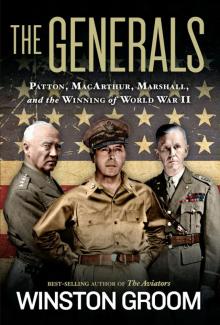 The Generals
The Generals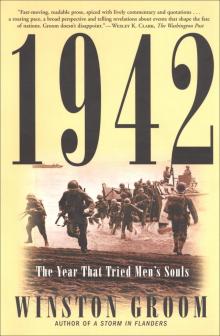 1942: The Year That Tried Men's Souls
1942: The Year That Tried Men's Souls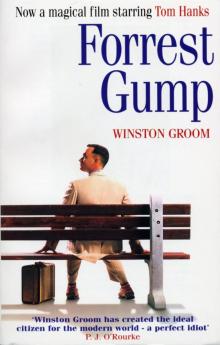 Forrest Gump
Forrest Gump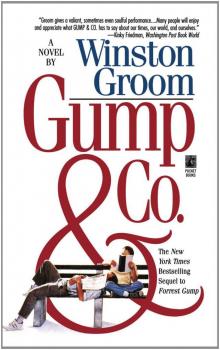 Gump and Co.
Gump and Co.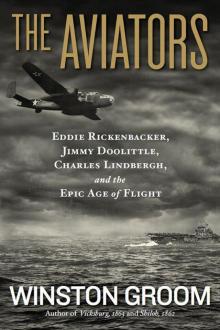 The Aviators
The Aviators Shrouds of Glory
Shrouds of Glory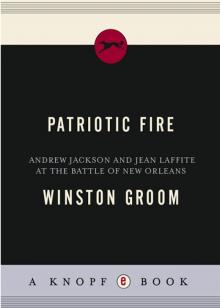 Patriotic Fire
Patriotic Fire Kearny's March
Kearny's March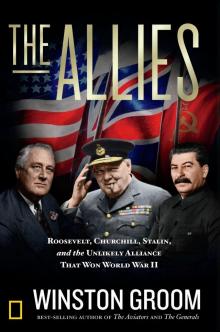 The Allies
The Allies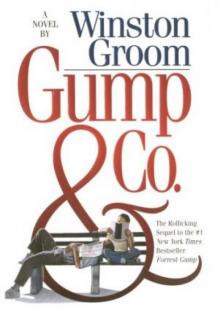 Gump & Company fg-2
Gump & Company fg-2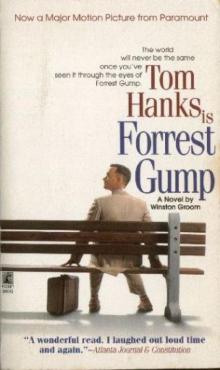 Forrest Gump fg-1
Forrest Gump fg-1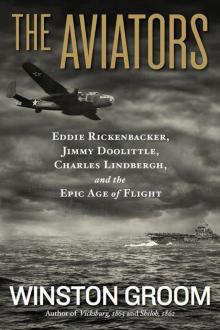 The Aviators: Eddie Rickenbacker, Jimmy Doolittle, Charles Lindbergh, and the Epic Age of Flight
The Aviators: Eddie Rickenbacker, Jimmy Doolittle, Charles Lindbergh, and the Epic Age of Flight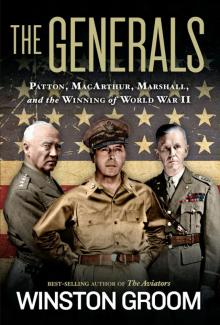 The Generals: Patton, MacArthur, Marshall, and the Winning of World War II
The Generals: Patton, MacArthur, Marshall, and the Winning of World War II